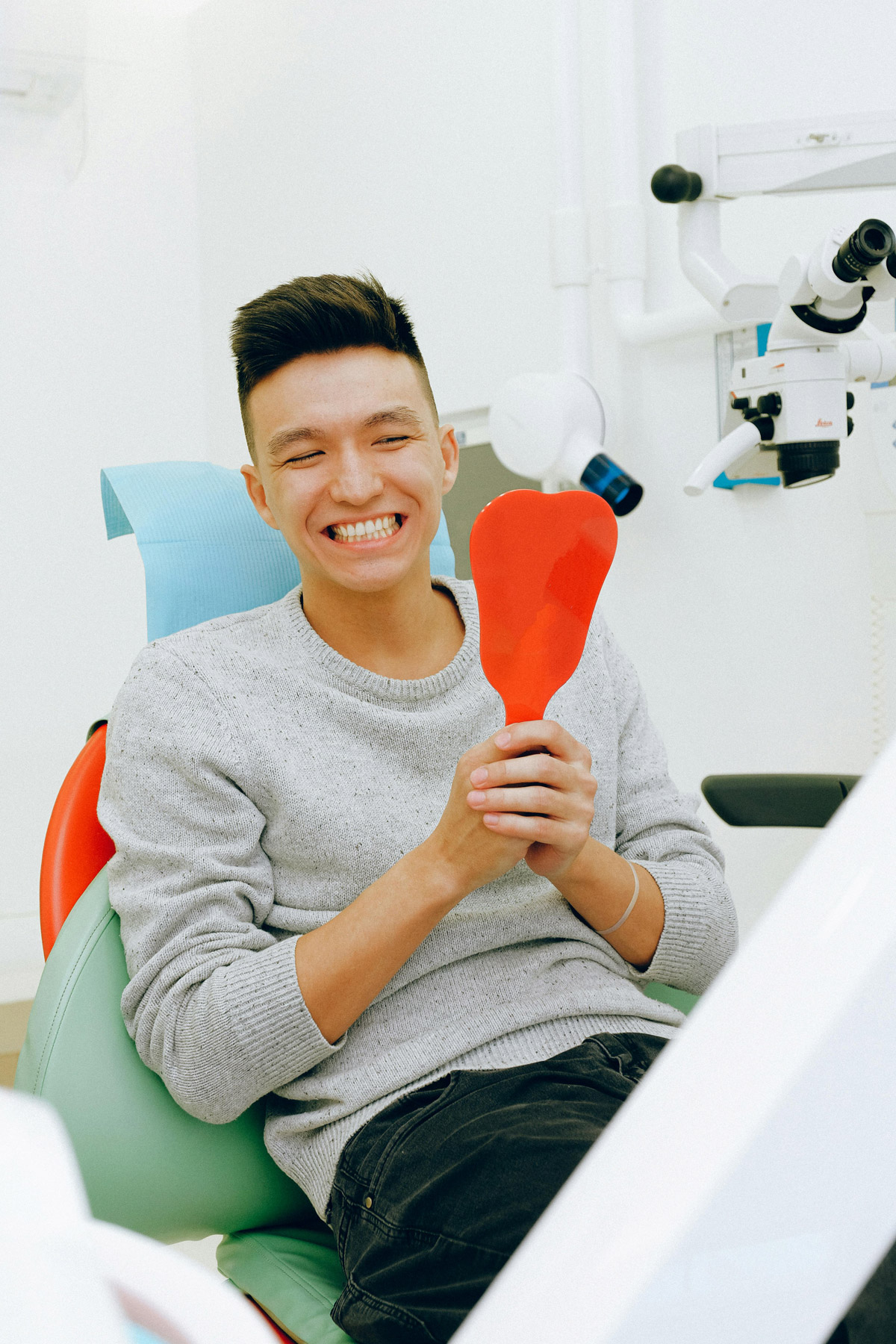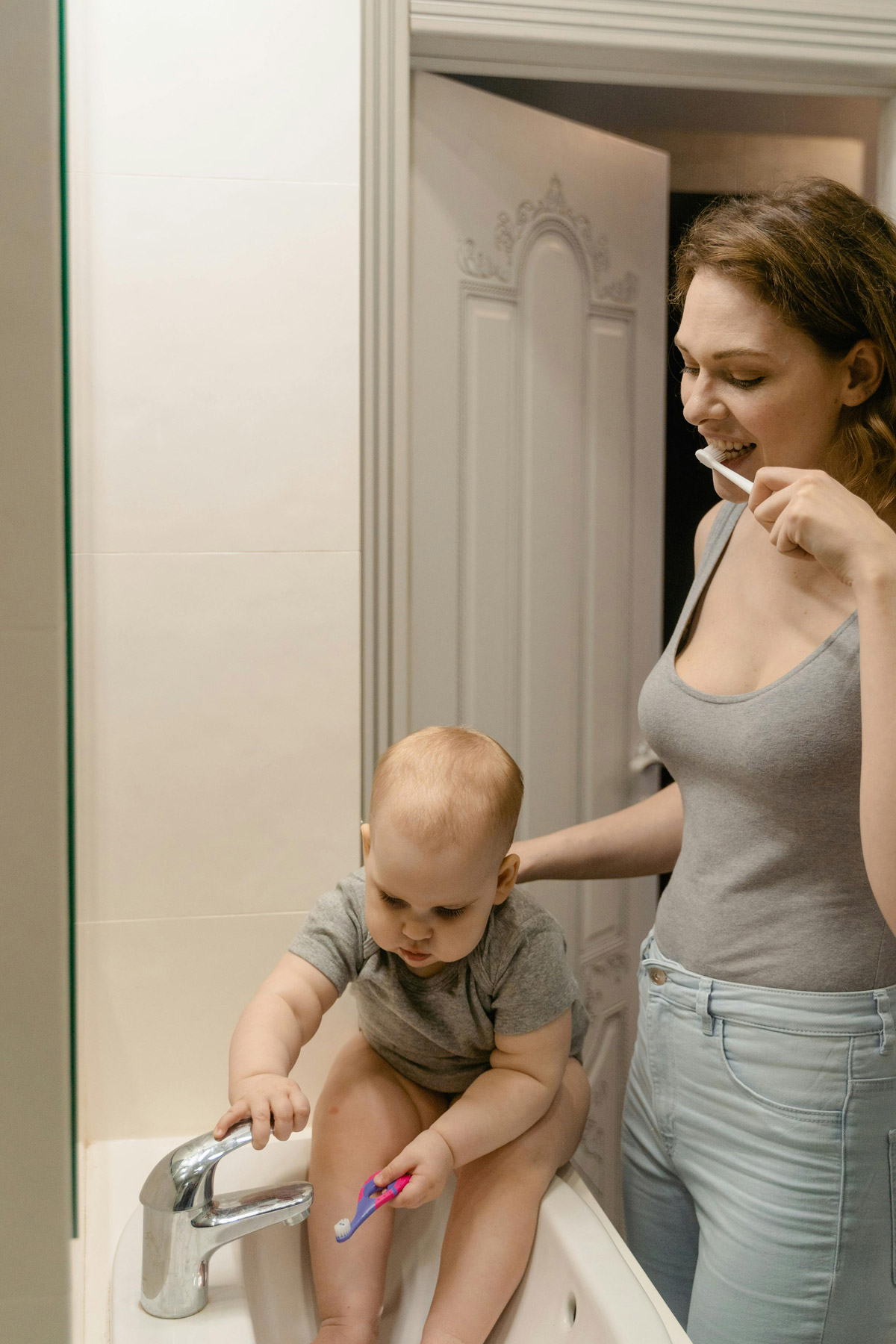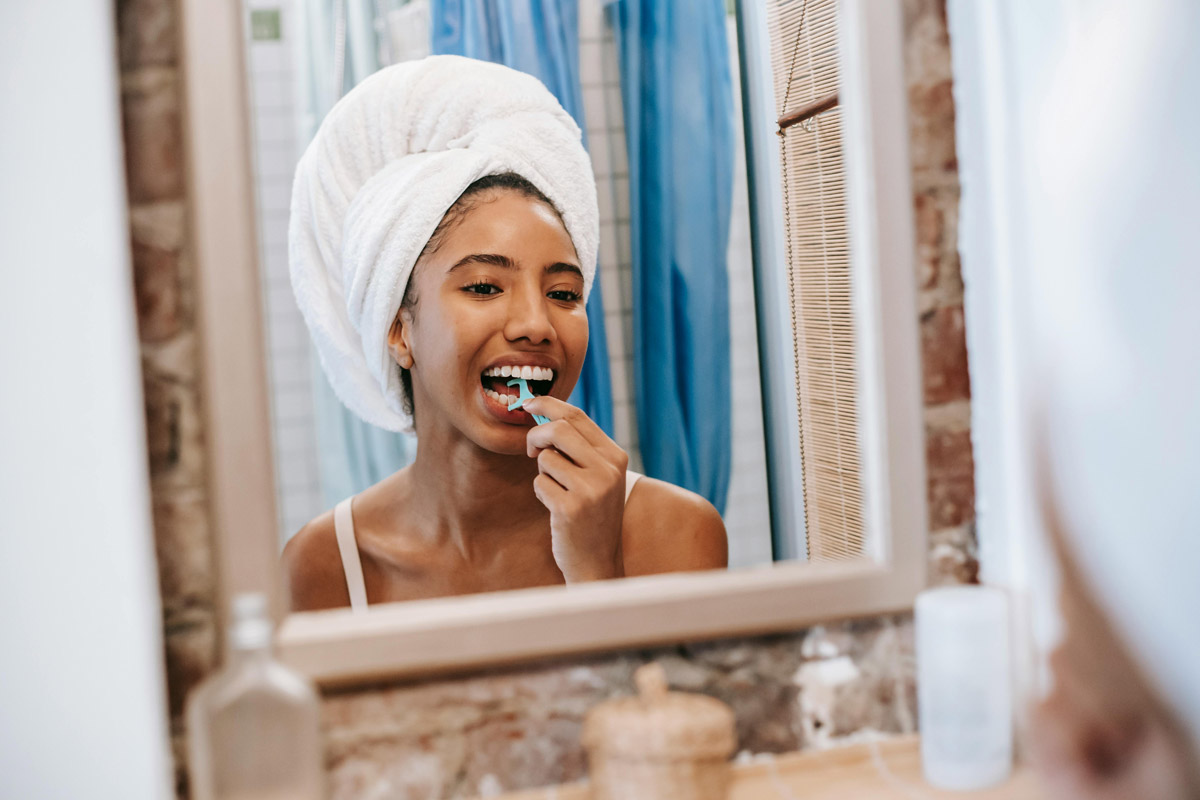
Fortune magazine has a story about oral health, particularly how to preserve your enamel. While most of us have heard the advice that we should brush after every meal (I’ve only rarely done this), that’s not true according to experts. Dentists interviewed by Fortune say that it’s better to just rinse with water after eating, as that helps restore the pH in the mouth to make it less acidic. Mouthwash, particularly the kind with alcohol, actually does the opposite and can wear away at the teeth over time. They also say something I needed to hear: drinking any carbonated beverage, even unflavored seltzers, can break down your teeth. *Looks around at the empty Bubbly cans in my office.* Here’s more from Fortune, with more oral health advice at the source:
In order to understand the power of rinsing out your mouth post-breakfast, lunch, snacks, and dinner, you first need to understand pH. PH—or potential hydrogen—is the level of acidic and basic compounds in the body, with 0 being the most acidic, 7 being neutral, and 14 being the most basic, or alkaline. Ideally, your mouth should remain at a neutral or basic pH, but mealtime can make your mouth more acidic.
“Every time you eat, your saliva breaks food down for digestion, which will create an acid by-product,” explains Lilya Horowitz, DDS, of Domino Dental in Brooklyn, N.Y. “This leads to more biofilm and plaque buildup, so rinsing with a neutral or basic water can help lower the pH in the mouth.” In an acidic environment or an environment below 4.5 pH, the enamel of the teeth will start to break down.
Over time, enamel breaking down can contribute to cavities and dental decay, according to oral surgeon Jason Auerbach, DDS. “The acidity that sits on one’s teeth and the bacteria that comes from decaying food on the surface of one’s teeth are the primary culprits for tooth decay, so rinsing actual hard material and debris off of the teeth using regular water is the most sensible way to combat it,” he explains.
When you swish your mouth with water after every meal, you’re offering the teeth and gums a less acidic, healthier environment. Just make sure to get to the bathroom as soon as you take your last bite.
“The best time to rinse with water is immediately after eating, but certainly sugary or acidic foods are most problematic,” says Auerbach. Foods like sauerkraut, vinegar, tomatoes, citrus, and jelly are high in acidity, so make sure to rinse—and stat—after you’ve enjoyed any of these ingredients. “This will lead to the mouth being cleaner, which will lower the inflammatory response in the body,” Horowitz says.
One thing to note: You should never clean your mouth with bubbly water. “Carbonated waters, even the sugar-free ones, are acidic and can weaken enamel. Seltzers are okay with meals in short durations, but nursing a can for hours at your desk is bad,” says Horowitz. Citrus-flavored carbonated waters are the worst offenders due to their double dose of acidity.
If you’re already in the habit of rinsing with mouthwash after lunch at your desk, know that this practice does not replace swishing with some H2O. “The primary advantage to using mouthwash is [for] halitosis—a.k.a. bad breath compensation—but the bigger issue is that most of the times mouthwashes are acidic and therefore are not good for the surface of the enamel,” Auerbach says.
I brush with an automatic toothbrush and floss most days, but it hasn’t occurred to me to just rinse my mouth after eating. It’s such an easy thing to do. I use mouthwash throughout the day when I feel like my mouth isn’t fresh and didn’t realize this was bad for my teeth! Further on in the article Dr. Horowitz recommends using alcohol free mouthwash. But that doesn’t make your mouth feel as clean! My seltzer habit also isn’t doing me any favors, although I kind of knew that and was just in denial. It tastes acidic if you drink it after a certain amount of time.
As for the advice we’ve all heard to brush after every meal, Dr. Auerbach says that “The benefit you derive by brushing your teeth or flossing after each meal will outweigh the negative effects.” I’m still kind of floored that there are negative effects to brushing your teeth!
Photos credit: Anna Shvets, Mart Production and Sora Shimazaki on Pexels













Mouthwash is totally unnecessary! Floss and brush.
Also remember everyone’s genetics are different. My partner never flosses and before we met hadn’t been to a dentist in 16 years. He just went and to my dismay, they said his teeth are perfect! Gah!
I floss a few times a week and brush twice a day. Annual dentist trips are always same…great oral health.
But definitely do NOT use mouthwash. Kills all the good bacteria in there.
I use an alcohol-free mouthwash and I haven’t had a cavity in 40 years. I do get fluoride treatments twice a year which keeps the enamel strong. I also use baking soda mixed with toothpaste a couple times a week, it’s great at removing surface stains from tea, coffee, berries etc.
This is excellent information.
Sort of related: our dentist grts very happy with people who drink mainly water. Coffee and tea, though staining are also fine (especially if you don’t add anything to them). We’re supposed to brush 2x per day, preferably an hour after eating. Our dental hygienist does oil pulling—rinsing your mouth with regular water sounds nicer.
Dentist here, me too!
I always say it’s important to give teeth a break, two hours or more between meals where nothing is ingested except water. This will allow the mouth to recover from the acidic pH during eating. This does mean only snacking at morning tea and afternoon tea times.
Also, spit don’t rinse is a really important message- you brush with fluoride toothpaste then spit out but don’t rinse with water! Leave the toothpaste residue so your enamel can continue to absorb fluoride and become harder, more resistant
I am on a quarterly bone strengthening shot that has the nefarious side effect of possibly causing jaw necrosis. So perfect oral hygiene is a must. Before my last cleaning, I tried oil pulling for a month, went in for the cleaning and said nothing to the hygienist. Afterwards, she said ‘whatever new thing you are doing, please keep it up, this cleaning was 100x easier than it’s previously been’. Crap. Now I am regular buyer of guru nanda coconut mint pulling oil (it’s less nasty than straight coconut oil).
Can you tell me how long you do the oil pulling? I could barely do the five minutes when I tried it. I’m going to try the mint pulling oil you suggest. Also, has anyone tried cocofloss? I’ve been wondering if it’s worth buying.
HOORAY!! I’m such a bore on social media bc I talk about this at the drop of a hat any time I can and the majority of responses are always “lol, what. never heard of this? my dentist still says mouthwash is great.” So many people seem not to know, and apparently are getting terrible advice from their dentists. Oral hygiene issues are directly and strongly correlated to much more “serious” internal issues – like diabetes and heart attacks. Keeping teeth and gums healthy can help prevent some really scary stuff.
I’m so glad the word is out now.